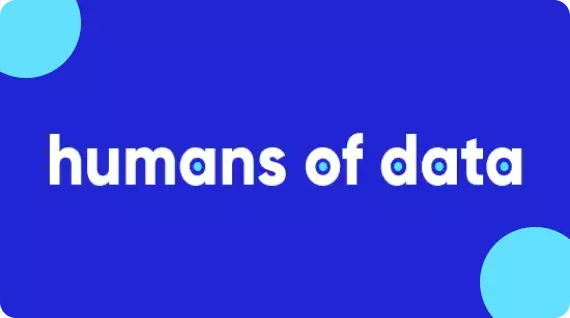6 Strategic Steps to Enable Data Stewards in 2024!

Share this article
In today’s digitally-driven world, data is being produced at an unprecedented rate, often referred to as a data deluge. From business intelligence and scientific research to social networking and e-commerce, data plays an indispensable role.
However, with the rapid expansion of data sources and their complexity, managing and maximizing the utility of this data poses significant challenges. This is where the concept of “enabling data stewards” becomes vital.
Data stewards serve as the guardians of data quality, compliance, and governance, ensuring that data is handled efficiently, ethically, and effectively.
Want to make data governance a business priority? We can help you craft a plan that’s too good to ignore! 👉 Talk to us
Table of contents #
- The role of a data steward: A primer
- 5 Reasons why enabling data stewards is critical for organizations
- How do you enable data stewards? 6 Strategic steps!
- Best practices for enabling data stewards
- Bottom line
- Related reads
The role of a data steward: A primer #
A data steward wears many hats, combining elements of data governance, data quality, management, and data architecture. Their responsibilities include, but are not limited to:
- Ensuring that data is stored, accessed, and managed according to compliance standards.
- Monitoring data quality and carrying out necessary interventions to maintain it.
- Acting as a mediator between data scientists, business analysts, and executives to translate data into actionable insights.
- Facilitating the correct use of data by providing proper documentation, data dictionaries, and usage guidelines.
5 Reasons why enabling data stewards is critical for organizations #
In a world increasingly reliant on data, the role of data stewards is often overlooked, even though they function as crucial pillars in the management and utilization of this invaluable asset.
They safeguard data quality, ensure compliance, and facilitate communication between various stakeholders.
The importance of enabling data stewards goes beyond merely making their jobs easier; it is about augmenting the entire data ecosystem of an organization to be more efficient, compliant, and actionable.
Here are the five reasons why:
- The assurance of data quality
- Regulatory compliance and risk management
- Bridging the gap between technical and non-technical stakeholders
- Speed and agility in decision-making
- Financial implications and cost savings
Let’s explore each reason in detail.
1. The assurance of data quality #
Data stewards are largely responsible for assuring data quality. High-quality data is essential for analytics, decision-making, and operations. Without the proper tools and authority, data stewards can’t effectively identify errors, inconsistencies, or redundancies in data.
Enabling them with robust data quality tools and relevant decision-making power ensures that the data an organization relies upon is accurate, consistent, and meaningful. This, in turn, enhances the credibility of business analytics and intelligence.
2. Regulatory compliance and risk management #
Data management involves a labyrinth of legal regulations and guidelines, such as GDPR in Europe or CCPA in California. Mismanagement of data can lead to severe financial penalties and reputational damage.
Data stewards are at the forefront of ensuring that all data handling and processing activities are compliant with these rules.
By enabling data stewards with the proper training and access to legal expertise, organizations can more effectively mitigate risks associated with non-compliance.
3. Bridging the gap between technical and non-technical stakeholders #
One of the less obvious but equally critical roles of a data steward is to act as an interpreter between technical and non-technical stakeholders.
They help translate the complexities of data into understandable insights for business executives, while also conveying the business requirements to data scientists and engineers.
When adequately enabled, data stewards can foster better collaboration and understanding across different departments, ensuring that data-related activities align closely with business objectives.
4. Speed and agility in decision-making #
In today’s fast-paced business environment, making quick yet informed decisions is crucial.
Data stewards can significantly speed up decision-making processes by ensuring that data is readily available, reliable, and presented in a format that is easy to understand.
Their work enables executives to make decisions based on facts and insights rather than intuition or incomplete information. Thus, empowering data stewards can translate into a more agile, responsive organizational structure.
5. Financial implications and cost savings #
Data mismanagement is not just a question of lost opportunities; it also carries significant financial implications.
Poor data quality and non-compliance can result in fines, while redundant data storage and inefficient data processing can escalate operational costs.
Well-equipped and knowledgeable data stewards can identify these inefficiencies and redundancies, helping the organization save resources and optimize data-related costs.
Enabling data stewards is not merely a function of HR or a tick-box exercise in compliance. It is a fundamental necessity for organizations that aim to build a resilient and adaptive data ecosystem. By doing so, businesses are not only optimizing their current operations but are also better prepared to evolve and compete in an increasingly data-centric world.
How do you enable data stewards? 6 Strategic steps! #
In a complex data landscape, data stewards serve as the custodians of an organization’s digital assets, ensuring that data is high-quality, secure, and compliant.
However, for them to fulfill this role effectively, they must be adequately enabled with the right tools, knowledge, and authority.
This entails more than simply assigning the title of ‘data steward’; it requires a multi-faceted approach, ranging from organizational support to technical enablement.
Here are six strategic steps to enable data stewards:
- Providing specialized tools for data governance
- Training and continuous education
- Establishing a clear governance structure
- Integration into business processes
- Offering incentives and a clear career path
- Collaborative frameworks and interdisciplinary teams
1. Providing specialized tools for data governance #
One of the first steps to enabling data stewards is providing them access to specialized software tools that make data governance easier. These tools might include data profiling software, data quality platforms, and governance dashboards.
These specialized platforms allow data stewards to monitor, validate, and manage data more effectively. Tooling also often includes automation features that can carry out routine tasks, freeing data stewards to focus on more strategic activities.
2. Training and continuous education #
Given the ever-changing landscape of data management and regulatory compliance, ongoing education is essential.
Training programs that update data stewards on the latest best practices, technological advancements, and compliance requirements can make a significant difference.
This might include workshops, webinars, and even sending them to relevant conferences. The goal is to keep them at the forefront of data governance expertise, ensuring that they are always equipped to handle new challenges.
3. Establishing a clear governance structure #
For data stewards to be effective, they must operate within a well-defined data governance structure. This involves creating clear roles and responsibilities, reporting lines, and decision-making protocols.
A well-articulated governance structure gives data stewards the necessary authority and accountability, making it easier for them to enforce data quality, manage metadata, and ensure compliance.
4. Integration into business processes #
Data stewardship shouldn’t exist in isolation; it should be an integrated part of an organization’s overall business processes and strategy.
Regular communication channels should be established between data stewards and other departments like finance, marketing, and operations.
This will allow for a more holistic approach to data governance that aligns with organizational objectives and also enables data stewards to provide more actionable insights.
5. Offering incentives and a clear career path #
Effective data stewardship can be a demanding job, requiring a blend of technical skills, business acumen, and diplomacy. To attract and retain high-caliber talent, organizations must offer incentives, be it financial rewards, career progression, or recognition.
A well-defined career path can also significantly motivate data stewards, giving them a long-term perspective and incentivizing them to contribute more effectively to the organization’s data management efforts.
6. Collaborative frameworks and interdisciplinary teams #
Data stewardship is not a one-person or one-department job. It often requires collaboration across different sectors of the organization.
Establishing interdisciplinary teams that include data stewards can encourage different perspectives and skills to converge on data-related projects.
Collaboration platforms and regular interdisciplinary meetings can also facilitate this dialogue, enriching the data governance process.
9 Non-negotiable best practices for enabling data stewards #
While traditional practices of enabling data stewards through specialized tools, ongoing training, and governance structures are well-established, there are additional, often-overlooked practices that can further enhance the effectiveness of data stewards.
Let’s explore such supplementary best practices, aimed at not just equipping data stewards but optimizing the environment in which they operate.
Here are nine best practices:
- Adopting ethical data practices
- Prioritizing psychological safety
- Iterative feedback loops
- Facilitating mentorship programs
- Employee well-being programs
- Encourage public speaking and publication
- Gamification of data governance tasks
- Remote work flexibility
- Open channels for innovation
Let’s understand each best practice in detail.
1. Adopting ethical data practices #
While compliance often takes center stage, a focus on ethics in data management can be a differentiator. Data stewards should be well-versed in ethical considerations surrounding data usage, from consent to fairness.
Embedding ethics into the data stewardship role not only enriches their capability but also builds trust both internally and externally.
2. Prioritizing psychological safety #
The best ideas and critical feedback often come when employees feel psychologically safe. Data stewards should be encouraged to speak openly about challenges and concerns without fear of negative repercussions.
A culture of psychological safety enables them to be more proactive about identifying and addressing issues before they become critical problems.
3. Iterative feedback loops #
Rather than just setting guidelines and policies from the top down, involve data stewards in the policy-making process itself.
Establishing iterative feedback loops, where data stewards can provide insights and feedback on governance policies, ensures that these policies are both robust and practical.
4. Facilitating mentorship programs #
Pairing less-experienced data stewards with seasoned experts in a mentorship program can be highly effective for skill transfer and professional development. This peer-to-peer learning mechanism can expedite the learning curve and also improve team cohesion.
5. Employee well-being programs #
The role of a data steward can be stressful, given the responsibilities related to compliance, data quality, and cross-functional coordination. Employee well-being programs specifically tailored to address the stressors of the role can enhance job satisfaction and performance.
6. Encourage public speaking and publication #
Allowing and encouraging data stewards to publish articles, white papers, or even speak at industry events serves multiple purposes.
It helps in personal brand building for the stewards, elevates the organization’s standing in data governance, and also keeps the stewards incentivized to stay updated with industry best practices.
7. Gamification of data governance tasks #
Simple gamification techniques can make routine tasks more engaging. Leaderboards, points, or small rewards for completing data governance tasks on time and accurately can provide an additional layer of motivation for data stewards.
8. Remote work flexibility #
The nature of data stewardship often allows for a good deal of remote work. Providing flexibility in this regard can improve job satisfaction, decrease turnover, and even widen the talent pool from which you can draw future data stewards.
9. Open channels for innovation #
Create an open channel where data stewards can suggest innovative ways to improve data governance, streamline processes, or integrate new technologies. Sometimes the best ideas for process improvement come from those deeply involved in the day-to-day tasks.
By incorporating these best practices into your strategy for enabling data stewards, you’ll be taking a more comprehensive approach that goes beyond the usual technical and structural considerations.
It’s about broadening the toolbox to create a more human-centric, dynamic, and innovative environment for data stewardship.
Bottom line? #
-
Data is often considered the new oil, driving business innovation, scientific discovery, and societal advancements. However, without effective management, this resource can become a liability rather than an asset.
-
Enabling data stewards is not just about making their individual jobs easier; it’s about turning data stewardship into an organizational capability.
-
By providing the right tools, training, and organizational structures, businesses can ensure that their data stewards are not just maintaining the status quo but actively contributing to the organization’s data strategy and long-term success.
Enabling data stewards: Related reads #
- What is data governance: Definition, importance, and components
- Data Stewardship: The key to implementing a robust data governance program
- Data Stewardship and Its Role in a Data Governance Program
- Data Governance vs Data Stewardship: Why They’re Critical?
- Data Governance Framework Examples, Templates, Standards, Best Practices & How to Create One?
- Data Governance and Compliance: Act of Checks & Balances
- How to implement data governance? Steps, Prerequisites, Essential Factors & Business Case
- How to Improve Data Governance? Steps, Tips & Template
- 7 Steps to Simplify Data Governance for Your Entire Organization
Share this article









